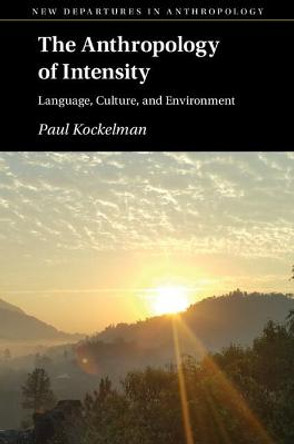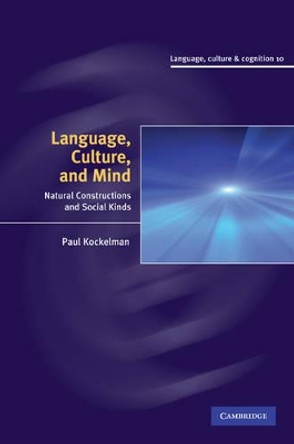Description
About the Author
Paul Kockelman is Professor of Anthropology at Yale University. He is the author of The Chicken and the Quetzal: Portable Values and Incommensurate Ontologies in Guatemala's Cloud Forest (Duke University Press, 2016), Language, Culture, and Mind: Natural Constructions and Social Kinds (Cambridge University Press, 2010), and Agent, Person, Subject, Self: a Theory of Ontology, Interaction, and Infrastructure (Oxford University Press, 2013). He is the editor of the Journal of Linguistic Anthropology.
Reviews
"Paul Kockelman has produced a work of stunning imagination. Here he showcases his breathtaking capacity to see things you didn't know could be seen. Kockelman's dazzling tour of the elements of meaning, and the infrastructure that makes meaning possible, cuts effortlessly through the disciplinary and theoretical barriers that so often thwart conceptual progress in social science. The challenging and sometimes unsettling nature of this work points to its greatest strength: the constant reminder that framing is everything. Is it a moat or a river? Is it a hindrance or a help? The answers draw simultaneously on technical structures of channels and codes and on political and ethnographic elements of human social life. This book is a landmark installment in Kockelman's masterly account of meaning, from information to value to agency."-N.J. Enfield, Professor and Chair, Department of Linguistics, The University of Sydney "With semiotics its point of departure and the world of computationally enabled semiotic agents its surround, this remarkable book about paths, lines and circles is itself a bridge connecting disparate points and opening up new pathways. It demonstrates the value in circling back to received greats, whose relations Kockelman uncovers or draws afresh-Bayes, Peirce, Turing, Jakobson, Freud, Mark Twain and more-as well as unexpected progenitors, like the founder of graph theory. It does so with acute precision, putting relations themselves into novel analytical configurations so that we might make sense of the digital, social and communicative networks in which we are all enmeshed. With Kockelman as our pathfinder the work is challenging, and always rewarding.''-Bill Maurer, Professor of Anthropology and Law, University of California, Irvine, and author of How Would You Like To Pay: How Technology is Changing the Future of Money (Duke University Press) "This is an extraordinary book... the author guides us on an exhilarating intellectual adventure by mapping out and rendering visible the (often unexpected) criss-crossings of models, theories, concepts, and methods in diverse disciplines. The result is to inaugurate a robust theoretical foundation for genuinely transdisciplinary scholarship. This will, I believe, be a book that many of us will continue to return to in generations to come."-Miyako Inoue, Associate Professor of Anthropology, Stanford University "The Art of Interpretation in the Age of Computation explores models, theories, concepts, and methods relating to the current age of computation from a number of diverse disciplines. Kockelman (anthropology, Yale) is an expert on semiotic practices that try to explain meaning making as a social practice ... Due to its specialized nature, this book is best suited to specialists in the area of semiotic practices." --Choice
Book Information
ISBN 9780190636531
Author Paul Kockelman
Format Hardback
Page Count 246
Imprint Oxford University Press Inc
Publisher Oxford University Press Inc
Weight(grams) 476g
Dimensions(mm) 236mm * 157mm * 25mm






